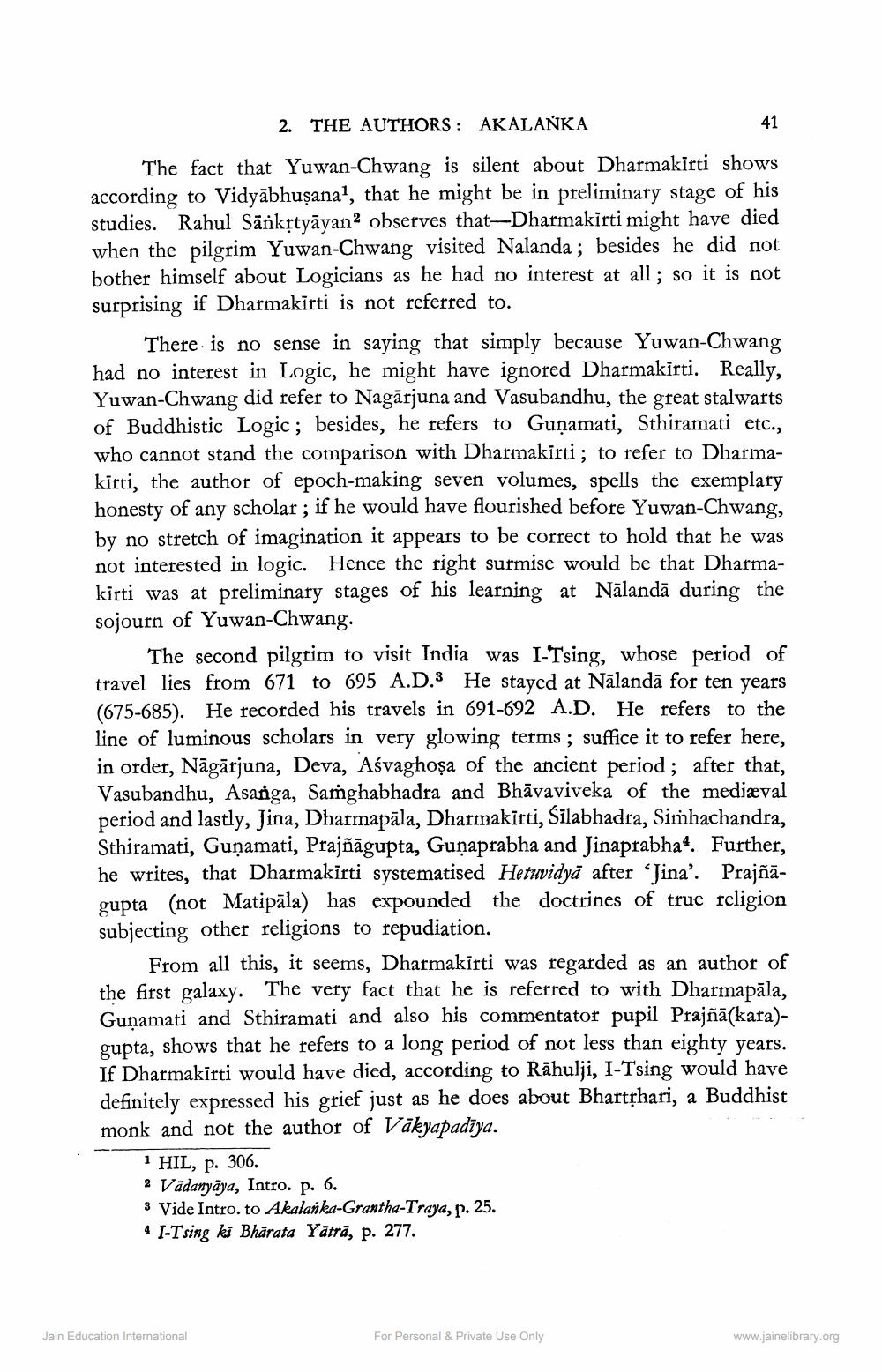________________
2. THE AUTHORS: AKALANKA
41
The fact that Yuwan-Chwang is silent about Dharmakīrti shows according to Vidyābhusana', that he might be in preliminary stage of his studies. Rahul Sankrtyāyana observes that-Dharmakirti might have died when the pilgrim Yuwan-Chwang visited Nalanda ; besides he did not bother himself about Logicians as he had no interest at all; so it is not surprising if Dharmakirti is not referred to
There is no sense in saying that simply because Yuwan-Chwang had no interest in Logic, he might have ignored Dharmakirti. Really, Yuwan-Chwang did refer to Nagārjuna and Vasubandhu, the great stalwarts of Buddhistic Logic; besides, he refers to Guņamati, Sthiramati etc., who cannot stand the comparison with Dharmakīrti; to refer to Dharmakirti, the author of epoch-making seven volumes, spells the exemplary honesty of any scholar ; if he would have flourished before Yuwan-Chwang, by no stretch of imagination it appears to be correct to hold that he was not interested in logic. Hence the right surmise would be that Dharmakirti was at preliminary stages of his learning at Nālandā during the sojourn of Yuwan-Chwang.
The second pilgrim to visit India was I-Tsing, whose period of travel lies from 671 to 695 A.D.3 He stayed at Nālandā for ten years (675-685). He recorded his travels in 691-692 A.D. He refers to the line of luminous scholars in very glowing terms; suffice it to refer here, in order, Nāgārjuna, Deva, Aśvaghoṣa of the ancient period; after that, Vasubandhu, Asanga, Samghabhadra and Bhāvaviveka of the mediæval period and lastly, Jina, Dharmapāla, Dharmakirti, Silabhadra, Simhachandra, Sthiramati, Gunamati, Prajñāgupta, Guņaprabha and Jinaprabha. Further, he writes, that Dharmakirti systematised Hetuvidya after ‘Jina'. Prajñāgupta (not Matipāla) has expounded the doctrines of true religion subjecting other religions to repudiation.
From all this, it seems, Dharmakirti was regarded as an author of the first galaxy. The very fact that he is referred to with Dharmapāla, Gunamati and Sthiramati and also his commentator pupil Prajñā(kara)gupta, shows that he refers to a long period of not less than eighty years. If Dharmakirti would have died, according to Rāhulji, I-Tsing would have definitely expressed his grief just as he does about Bhartshari, a Buddhist monk and not the author of Vākyapadīya.
1 HIL, p. 306. 2 Vädanyāya, Intro. p. 6. 3 Vide Intro. to Akalanka-Grantha-Traya, p. 25. 4 I-T sing ki Bhārata Yātrā, p. 277.
Jain Education International
For Personal & Private Use Only
www.jainelibrary.org




